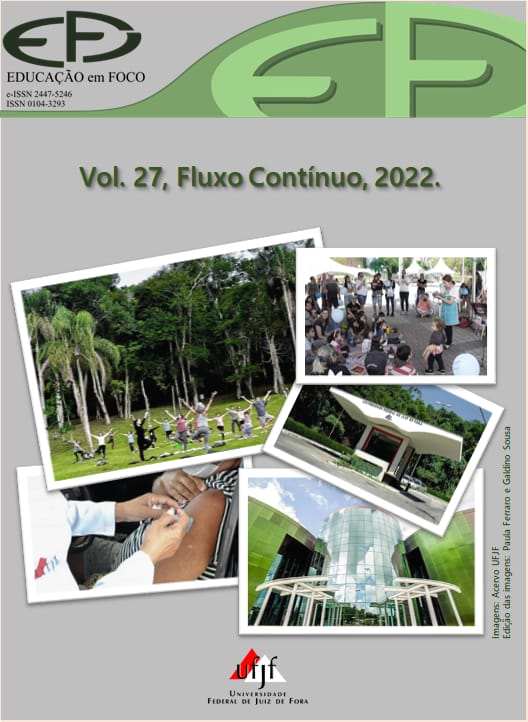ANÁLISE DAS REPRESENTAÇÕES EM EXPERIMENTOS QUÍMICOS DE LIVROS DIDÁTICOS
DOI:
https://doi.org/10.34019/2447-5246.2022.v27.36573Resumen
Os Livros Didáticos (LDs) de Química são importantes ferramentas para o processo de ensino e aprendizagem na Educação Básica. Muitas vezes, eles são o principal material didático utilizado pelos docentes em sala de aula e, por isso, são de grande relevância para pesquisas na área educacional. Nesse sentido, esta pesquisa tem como objetivo compreender como as diferentes formas de representação estão dispostas nas atividades experimentais, ao longo de dois capítulos presentes nos LDs de Química aprovados pelo PNLD de 2018. Para atingir tal objetivo, utilizamos como metodologia os pressupostos teóricos da análise de conteúdo. Observamos que os temas introdução à Química e às substâncias e misturas e o tema soluções são os que mais apresentam atividades experimentais nos volumes 1 e 2, respectivamente. Além disso, verificamos que há atividades experimentais com mais de um tipo de representação e há atividades que apresentam uma única representação, mas que solicita aos alunos a construção de outras formas de representação, como a construção de gráficos e tabelas. Ao longo dos capítulos, averiguamos que os autores trazem bastantes representações que acompanham o texto escrito e em alguns exercícios utilizam imagens para a resolução, bem como há representações que abordam os três níveis do pensamento químico. Embora os capítulos analisados e os roteiros experimentais utilizem de representações e estas estejam integradas a atividade e/ou texto escrito, ainda é necessário que os autores utilizem mais formas de representações e que elas apresentem a função de auxiliar na compreensão de conceitos científicos.
Descargas
Descargas
Publicado
Cómo citar
Número
Sección
Licencia
Ao submeter um artigo à revista Educação em Foco e tê-lo aprovado, os autores concordam em ceder, sem remuneração, os seguintes direitos à Educação em Foco: os direitos de primeira publicação e a permissão para que Educação em Foco redistribua esse artigo e seus metadados aos serviços de indexação e referência que seus editores julguem apropriados.

















